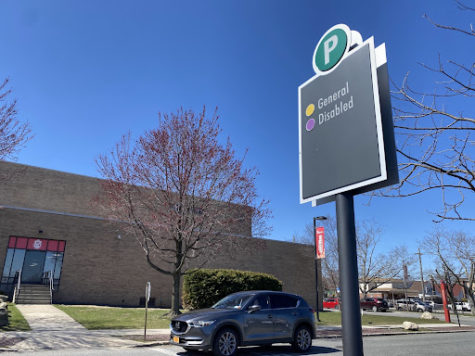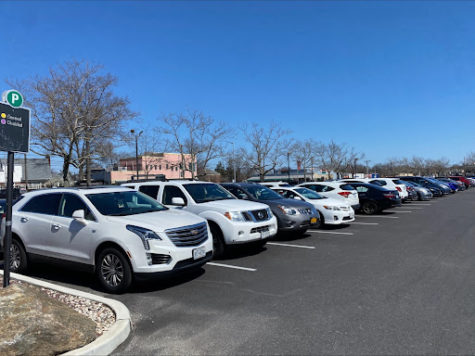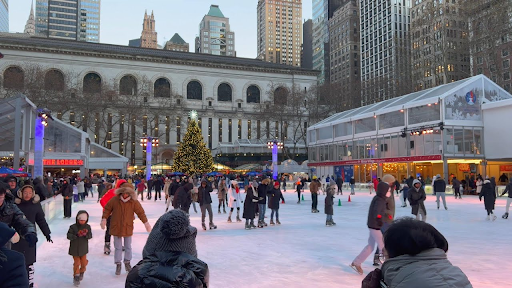
Along with all students who park their cars on campus, junior Julianna Grgurovich paid $100 for her general-access parking pass. This pass gives students access to four different parking lots with a total of 2,207 parking spaces, according to University spokesperson Brian Browne.
However, paying for these passes does not guarantee students will find a spot on campus, nor does it guarantee that students’ cars will be kept safe within the confines of campus, which is not what Grgurovich expected.
When returning to her car at the end of the day, Grgurovich was welcomed by a crack stretching half of her car window.
“I can park on one of the blocks off campus, but I paid for a pass and what I thought would be some sort of security for my car,” said Grgurovich. The third-year student kept her car parked in what she called an “inconspicuous spot” in the parking garage by DaSilva Memorial Field.
However, the University’s liability statement asserts that St. John’s “assumes no responsibility for the care and protection of any vehicle or its contents at any time the vehicle is on campus property.” So, when Grgurovich reached out to the Department of Public Safety about the incident, she did not receive any further aid in the matter.
When asked about how students facing financial hardships can settle their ticket fees, Browne suggested that students utilize parking in the garage where “parking is always available,” and thus avoids tickets for parking in prohibited spots. Ironically, this is the same garage Grgurovich now avoids out of fear of further damage to her car.
Browne also stated that when Gate 4 was repaved, 15 spots were lost as a result of widening the spots to prevent vehicle damage.
71 percent of the almost 15,000 in-person students on the Queens campus commute to school. And while many students utilize public transit, those who pay for parking passes are not guaranteed a spot.
In fact, many students complain that finding a spot on campus during peak class times is virtually impossible. Senior Taylor McMahon said, “If you have a 9:05 a.m. [class], you need to get to campus at least forty minutes early to find a spot.”
Many commuters drive in from the outer boroughs, New Jersey, Long Island and other traffic-dense locations. In order to find a spot, students coming from these places have to begin their commutes over an hour earlier than normal.

When Hannah Wellbrock attends her graduate classes after 5 p.m., she says she is normally able to find a spot quickly; however, she noted that it is often one of the few spots left available even at a late hour.
The inability for students to find a parking spot often causes tickets issued from Public Safety for situations ranging from parking in the employee-designated parking spots to creating their own spots.
“There were no spots on the first day of classes so I had to park in a handicapped-reserved spot,” one student told The Torch, speaking on the condition of anonymity for fear of repercussions. “It was so embarrassing, but I was looking for a spot for over half an hour.”
The student felt as though they had to park in this spot because there was the choice of being late to class or getting there on time — the latter not happening if the student kept searching for a spot.
Resident students may park on campus too, for an annual fee of $500. However, the only available lot for overnight parking is the Public Safety lot outside of Gate 6. Students that live in the Townhouses have a parking lot outside and next to their dorms — but this is a general parking lot reserved for daytime parking for students and some reserved spots for faculty members.
Senior Camryn Ganley elects to park her car on 82nd street, right behind the Townhouses, instead of on campus. There, she says, she finds a parking spot in mere minutes every time. Ganley said that “during class times it is also a popular parking area for commuters,” yet despite this, she finds going outside campus boundaries a more effective way for finding consistent parking. For this reason — as well as no fee — Ganley keeps out of the University lots.
Students who drive to campus told The Torch a stressful story from parking in the University lots, whether it be an extra long journey to find a spot, damage to their car or other stressors that have yet to be brought to light.







